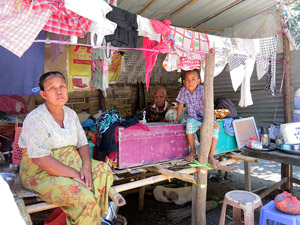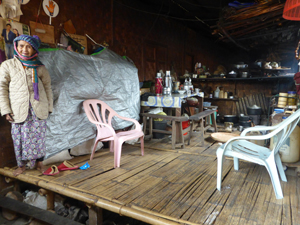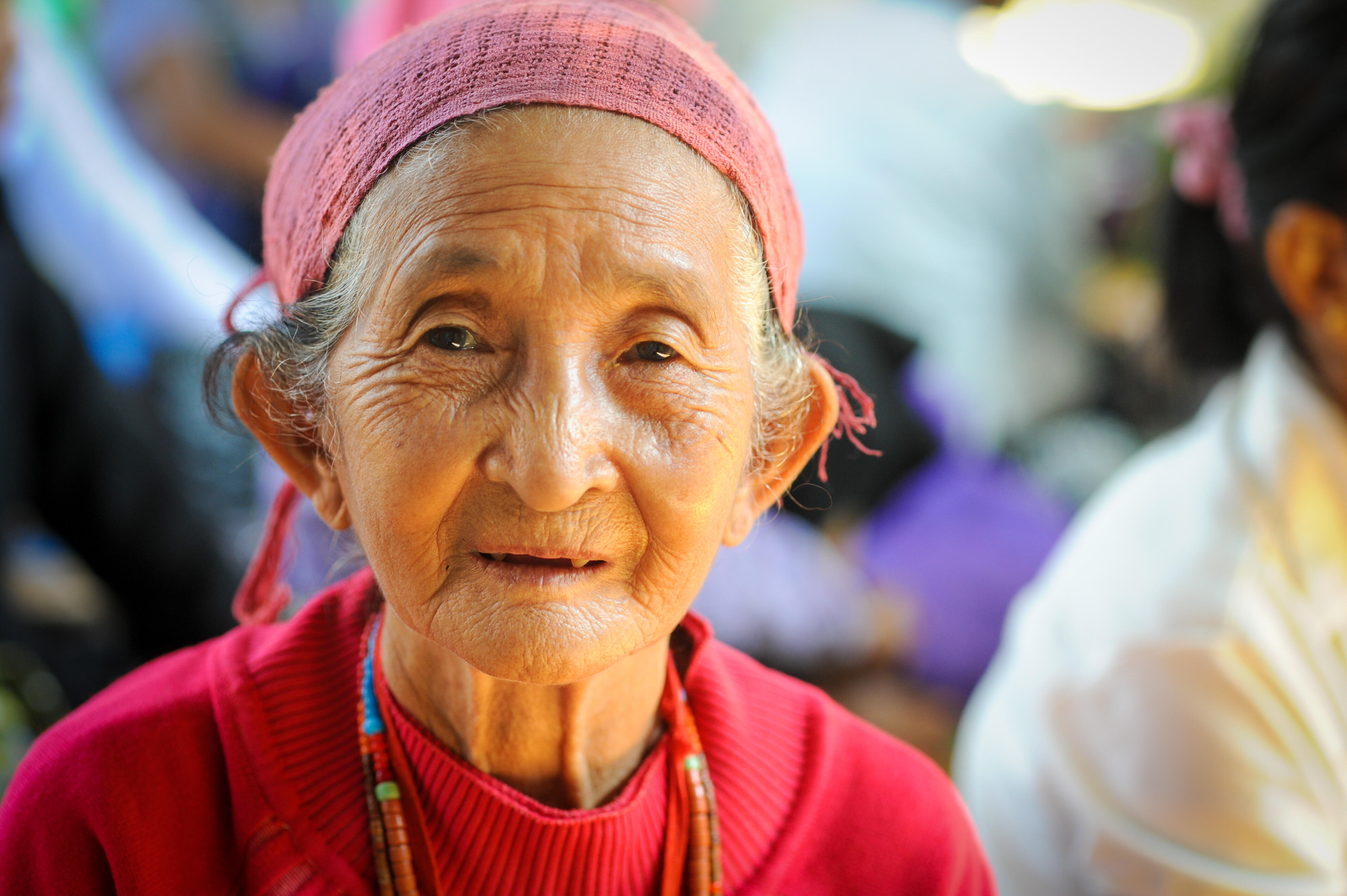Myanmar is ageing. There are more elderly people in Myanmar than ever before. In the last 30 years the number of older persons (aged 65 and over) per 100 young persons (aged under 15) has almost doubled to 20.1. In the coming decades this ratio, the ageing index, will only continue to increase, only more rapidly. Ageing is a global phenomenon, but it is progressing the fastest in developing countries, including those with large youth populations such as Myanmar.
Ageing is a triumph of development: People live longer because of better nutrition, sanitation, health care, education and economic well-being. But in societies where social services are underdeveloped, the social and economic challenges of ageing take a heavy toll on the elderly.
One in five elderly people have to work
An important indicator of the well-being of older persons is their economic activity. In most cases, it is a sign of poverty and deprivation if persons at an advanced age still have to work. As the HelpAge Asia-Pacific regional conference in Hanoi 6-8 September 2016 prepares to focus on the Economic Implications of Ageing, data from the 2014 Myanmar Population and Housing Census shows that one in five elderly people still work (22 per cent of people aged 65 and above). The majority of elderly workers are engaged in “agriculture forestry and fishing”, which is a physically demanding sector.
“The data suggest that economic realities oblige many people to continue heavy manual labour into old age to survive. This underlines the need for adequate social services, protection mechanisms and policies that serve the aged being in place,” says Janet E. Jackson, UNFPA Representative for Myanmar.
Invaluable contributions of older people

The contributions of older persons to society are invaluable and can often not be measured in economic terms, such as caregiving and passing on traditions to younger generations. Older persons are also important as leaders, often playing a role in conflict resolution within families, in communities and even in emergency situations.
Daw Aye Than, aged 64, played a critical role for her family during the 2015 floods when they had to leave their home to find safety above the waterline. She is the caregiver for her father, aged 86, and her two young grandchildren. Her pregnant daughter gains a small income for the family through casual labour, while her son-in-law is away trying to find employment as a migrant worker.
The family used up its modest capital of US$55 to build a makeshift open shelter by the roadside. There was not enough money for four walls and a door, only for two walls.
Lack of income, discrimination and weakening networks

Daw Aye Than is one of 4.5 million people in Myanmar over the age of 60, the majority of whom cope with growing old in difficult circumstances. Many elderly lack income, and some become subject to discrimination and abuse. And as their partners, siblings and friends pass away, their social support networks weaken. Older women, in particular, are vulnerable to discrimination, social exclusion and denial of the right to inherit property. In Myanmar, as in the rest of the world, women live longer than men, and therefore there are more old women than there are old men.
Many older persons eventually require care, a responsibility that typically falls on their families. But declining fertility and rapid urbanization are changing traditional family relations, and as the number of older people grows, families will need support with caregiving. Building a social protection system for the elderly will become increasingly important for Myanmar as the country develops. Pensions will particularly help older people without families. They can also help balance gender relations by providing both older men and women with a source of income. Men often receive pensions when they retire from work, whereas women’s participation in the labour force is significantly lower.
What is UNFPA doing?
UNFPA works to raise awareness about population ageing and the need to harness its opportunities and address its challenges. UNFPA also supports research and data collection to provide a solid base for policies and planning, and makes sure ageing issues are integrated into national development programmes and poverty reduction strategies.


